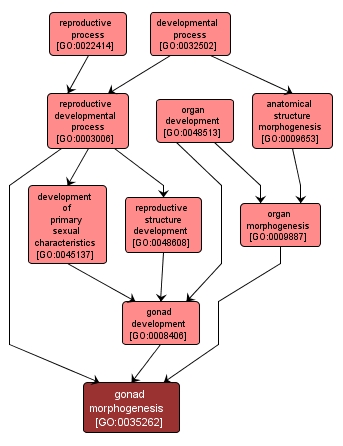GO TERM SUMMARY
|
| Name: |
gonad morphogenesis |
| Acc: |
GO:0035262 |
| Aspect: |
Biological Process |
| Desc: |
The process by which the anatomical structures of the gonads are generated and organized. A gonad is an animal organ producing gametes, e.g. the testes or the ovary in mammals. |
|

|
INTERACTIVE GO GRAPH
|














